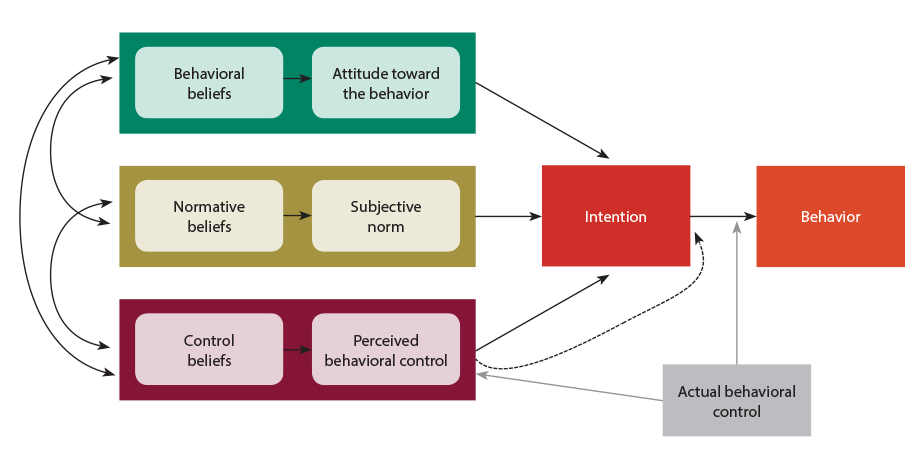+ 123 456 7890
Theory of Planned Behavior
According to the Theory of Planned Behavior, behavior is influenced by three elements:
- Belief and Attitude: that the behavior will be beneficial to the individual. For example, a mother feels that traveling a further distance to buy from a less risky, regulated medicine source is worth the time and resources because the medicine will be able to treat her child’s malaria.
- Subjective Norms: the belief that other people think that the behavior is acceptable. For example, a mother believes that her husband and friends also support spending more money to buy from a higher quality, regulated medicine source.
- Perceived Ability: the belief that one has the skills and capability to change behavior. For example, a mother believes that she is able to access quality medicine sources and verify medicine quality before purchasing.
How Can the Theory of Planned Behavior Be Applied?
The Theory of Planned Behavior can be used to change behaviors that are heavily influenced by peers and the close social network. This theory tells us that the close social network needs to be targeted to support the desired behavior change in the individual, and that it is important to highlight the short-term benefits of the behavior change to promote action.



